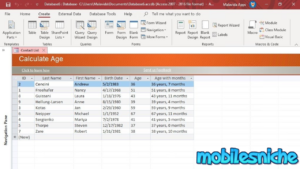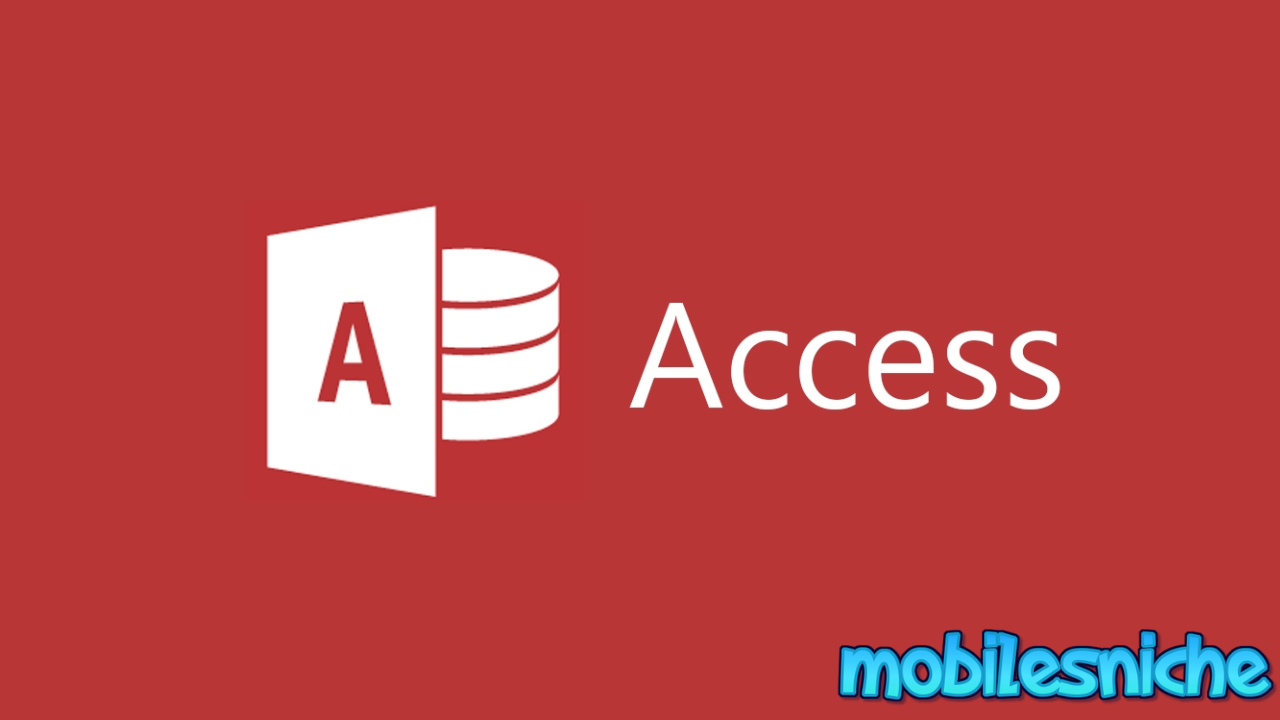Are you ready to delve into the world of Microsoft Access? In this article, we will explore the significance and functionality, a database management system that plays a pivotal role in the Microsoft 365 office suite.
Microsoft Access is a well-known tool for managing databases, offering users a seamless and user-friendly experience. Whether you are a beginner or an experienced user, It can be a game-changer in how you handle data within your organization.
In this article, we will provide an introductory guide, covering its key features, benefits, and how it can be leveraged for efficient database management. Stay tuned to unravel and discover how this cutting-edge tool can enhance your data management capabilities.
Understanding Microsoft Access
Microsoft Access is a popular database management system that offers a user-friendly interface for creating and managing databases. It allows users to store, organize, and retrieve large amounts of data efficiently. Unlike other database systems, Microsoft Access is part offering seamless integration.
Key Features of Microsoft Access
- Data Storage: Microsoft Access provides a robust platform for storing and organizing data in tables. Users can easily input, edit, and manage data within the database.
- Query Capabilities: Users can create complex queries to extract specific information from the database. This feature allows for efficient data retrieval based on user-defined criteria.
- Forms: Microsoft Access offers customizable forms that simplify data entry and enhance user interaction with the database. Forms provide a user-friendly way to input and view data.
- Reports: Users can generate detailed reports based on the data stored in Microsoft Access. Reports can be customized to present data in a visually appealing format for analysis.
Microsoft Access in Microsoft 365 Suite
Microsoft Access seamlessly integrates with other applications in 365 suite, such as Excel, Word, and Outlook. This integration allows for enhanced productivity and collaboration among users within the ecosystem. By leveraging the power of Microsoft 365, users can streamline workflows, share data seamlessly, and enhance communication across teams. The interoperability of Microsoft Access with other Microsoft tools makes it a valuable asset for users looking to manage data effectively within a familiar and cohesive environment.

Article Reviews on Microsoft Access
Microsoft Access continues to play a significant role in database management, offering users a versatile platform for organizing and analyzing data. Let’s delve into the article reviews to gain insights into the current landscape.
Relevance of Microsoft Access in 2024
In 2024, the relevance persists in the technological sphere despite the emergence of alternative database management systems. Compared to its counterparts, Microsoft Access stands out for its user-friendly interface, ease of use, and integration capabilities with Office applications. While some might perceive it as a legacy system, its adaptability and consistent updates have kept it relevant for businesses and individuals seeking a cost-effective database solution. The flexibility of Microsoft Access allows users to create custom databases without the need for extensive programming knowledge, making it a go-to choice for many small to medium-sized enterprises.
User Reviews and Experiences
User reviews and experiences shed light on the practical applications. Positive reviews often highlight its intuitive design, quick learning curve, and ability to handle sizable datasets efficiently. Users appreciate the seamless integration with Excel, which simplifies data importing and exporting tasks. However, some users express concerns about limitations in scalability for large-scale operations and occasional performance issues when dealing with extensive datasets. Despite these drawbacks, many users find to be a reliable tool for managing databases, especially in environments where simplicity and quick deployment are prioritized.
In summary, while it continues to face competition from more advanced database management systems, its ease of use, familiarity, and cost-effectiveness ensure its relevance in 2024. User experiences paint a balanced picture of Microsoft Access, showcasing both its strengths and areas for improvement, ultimately emphasizing its value as a versatile database solution in various settings.
Conducting Access Reviews
Conducting Review is essential for maintaining security and compliance within organizations. By efficiently managing group membership and application access, organizations can ensure that data and resources are only accessible to authorized personnel. Regular Access Reviews are crucial to identifying and addressing any unauthorized access promptly.
Access Review Best Practices
When conducting Reviews in Microsoft Access, there are several best practices to follow for optimal efficiency and effectiveness:
- Regularly schedule Access Reviews to ensure ongoing compliance and security.
- Clearly define roles and permissions to streamline the review process.
- Utilize automated tools to facilitate the review process and enhance accuracy.
- Involve relevant stakeholders in the review process to validate access rights.
Tools for Access Reviews
Microsoft Access offers various tools and resources to simplify the Review process:
- My Access: A user-friendly portal where reviewers can perform access reviews for groups and applications.
- Access Review Guides: Step-by-step guides and tutorials to assist users in conducting thorough out the product.
- Compliance and Governance Features: Tools that help organizations govern and recertify access to groups, applications, and sites to maintain security and regulatory compliance.
By implementing these best practices and utilizing the available tools, organizations can ensure thorough and efficient Access Reviews within to uphold data security and compliance standards.
Conclusion
In conclusion, the article and review on Microsoft Access have highlighted its significance as a widely-used database management system. It offers a user-friendly interface for creating and managing databases, making it accessible for both simple and complex data needs.
The discussion around reaffirms its relevance in database management, especially for users looking for an efficient and intuitive solution for organizing and analyzing information. As technology continues to evolve, we can expect to adapt and integrate new features to meet the changing demands of database systems.
Looking ahead, future trends in the field of database systems may focus on enhancing collaboration capabilities, improving data security measures, and leveraging cloud-based solutions for increased accessibility and scalability. It is poised to continue its role as a valuable tool for businesses and individuals seeking efficient data management solutions in the digital age.
For more Slot Reviews like this, Visit our Website Here.


